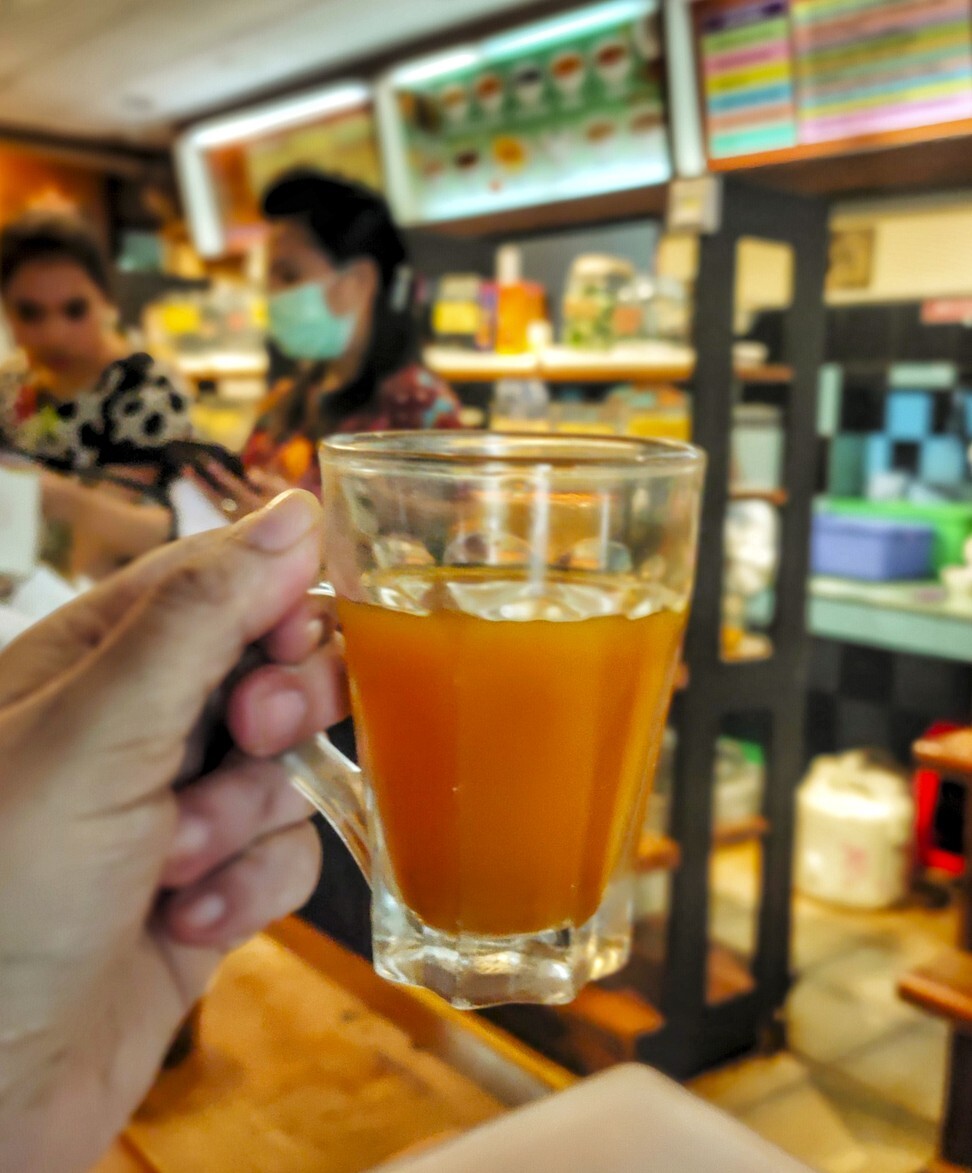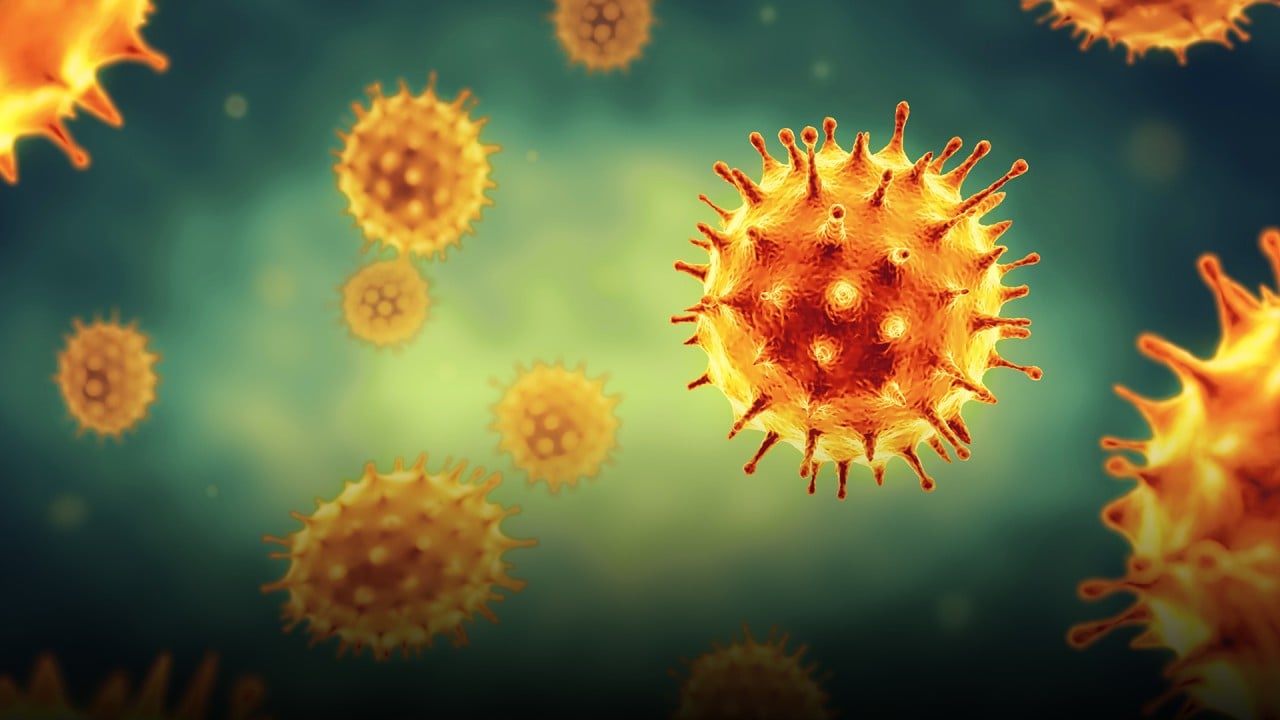
Coronavirus can be ‘killed’ with eucalyptus necklace: Indonesian minister
- Aromatherapy aid can wipe out 42 per cent of the virus if worn for 15 minutes, or up to 80 per cent if used for half an hour, agriculture minister claims
- But scientists are sceptical – and some Indonesians fear becoming a ‘laughing stock’
The necklace, which is to be mass-produced next month, would be worn like a lanyard and name tag and contain powdered eucalyptus for the user to inhale. Roll-on and inhaler-style versions are also being produced.
Agriculture minister Syahrul Yasin Limpo on Friday claimed the necklace could “kill” 42 per cent of the virus if worn for 15 minutes, or up to 80 per cent if used for half an hour.
Still, the ministry appears hopeful the necklace might help turn the country’s fortunes around. It says the vapour from the eucalyptus can “damage the structure of the main protein of the virus so that it finds it difficult to replicate”.

Fadjry Djufry, head of the agriculture ministry’s research and development agency, said on Monday his ministry had been conducting the research since March, when Indonesia first reported cases of Covid-19.
“We have carried out various tests on all of our herbal ingredients that we consider have the potential to inhibit the coronavirus,” he said.
Djufry admitted, however, that the ministry had not tested the product on SARS-CoV-2 – the coronavirus that causes Covid-19 – but on more common human coronaviruses like the alphacoronavirus and betacoronavirus instead.
This was because no laboratory has been able to grow SARS-CoV-2 using cell culture, a method of growing the cells in an artificial environment, according to the ministry.
In a statement, the ministry said it “did not have the authority and competence” to conduct clinical trials, as these needed to be headed by a pulmonologist.
As of Tuesday, Indonesia had reported 66,226 cases and 3,309 fatalities. Experts say the country’s infection rate is likely to rise further and on Sunday it reported a daily record of 82 deaths.

TRADITIONAL REMEDIES
The ministry said its research was based on various “publications and empirical facts related to eucalyptus oil”, which had been passed “from generation to generation as an alternative treatment for flu and respiratory disorders”. Its scientists tested the active ingredients of fifty plants for antiviral activities using in vitro testing.
This is not the first time Indonesians have turned to traditional remedies in the fight against Covid-19.
Jamu, an Indonesian herbal drink made of ingredients including ginger and turmeric, has grown in popularity as it is commonly believed to improve immune systems.
Djufry backtracked on the agriculture minister’s earlier claim on Friday by saying the ministry received a distribution permit for the necklace from the country’s National Agency of Drug and Food Control as “jamu” – despite the necklace bearing the words “Anti Virus Corona”, or anti-coronavirus.

03:10
Coronavirus: Decoding Covid-19
“Our product claims are indeed limited to what has become the permission from the [agency], but laboratory-wise this has the potential to kill the coronavirus,” Djufry said. “We do not overclaim.”
Mohammad Adib Khumaidi, chairperson of the Indonesian Society of Emergency Physicians and president-elect of the Indonesian Medical Association, cautioned that more research would be needed before the necklace could be considered an “antidote”.
However, he said the necklace was a scientific product because it had gone through a “research process” in an “internationally accredited laboratory”.
“In the research process later, there will definitely be clinical trials, then there is a process for scientific proof through journals and so on,” Khumaidi said.
LAUGHING STOCK?
Dicky Budiman, a researcher pursuing his PhD in global health security and pandemics at Australia’s Griffith University, was more sceptical.
He said the main form of transmission of the coronavirus was through people touching their eyes, mouths and noses with hands that had been exposed to the virus. This could only be prevented by washing hands regularly and maintaining personal hygiene.
He cautioned against putting too much trust in treatments that were still in the early stages of research as this could lead to “false expectations”.
Many Indonesians are similarly sceptical. Indonesian writer Nadhila Chairannisa, 26, who is based in Oxford, Britain, but has been closely following the coronavirus situation in her home country, struck a cautious note.
“If the necklace fails to serve the purpose it claims, there is a risk Indonesia could become a laughing stock,” she said.
Indonesian housewife Ranti Kumala, 34, said she would not want to use any product that had not been fully tested as “our health cannot be trial and error”.
“The important thing [about the necklace] is there should be no [intention of] duping the people,” she said.

